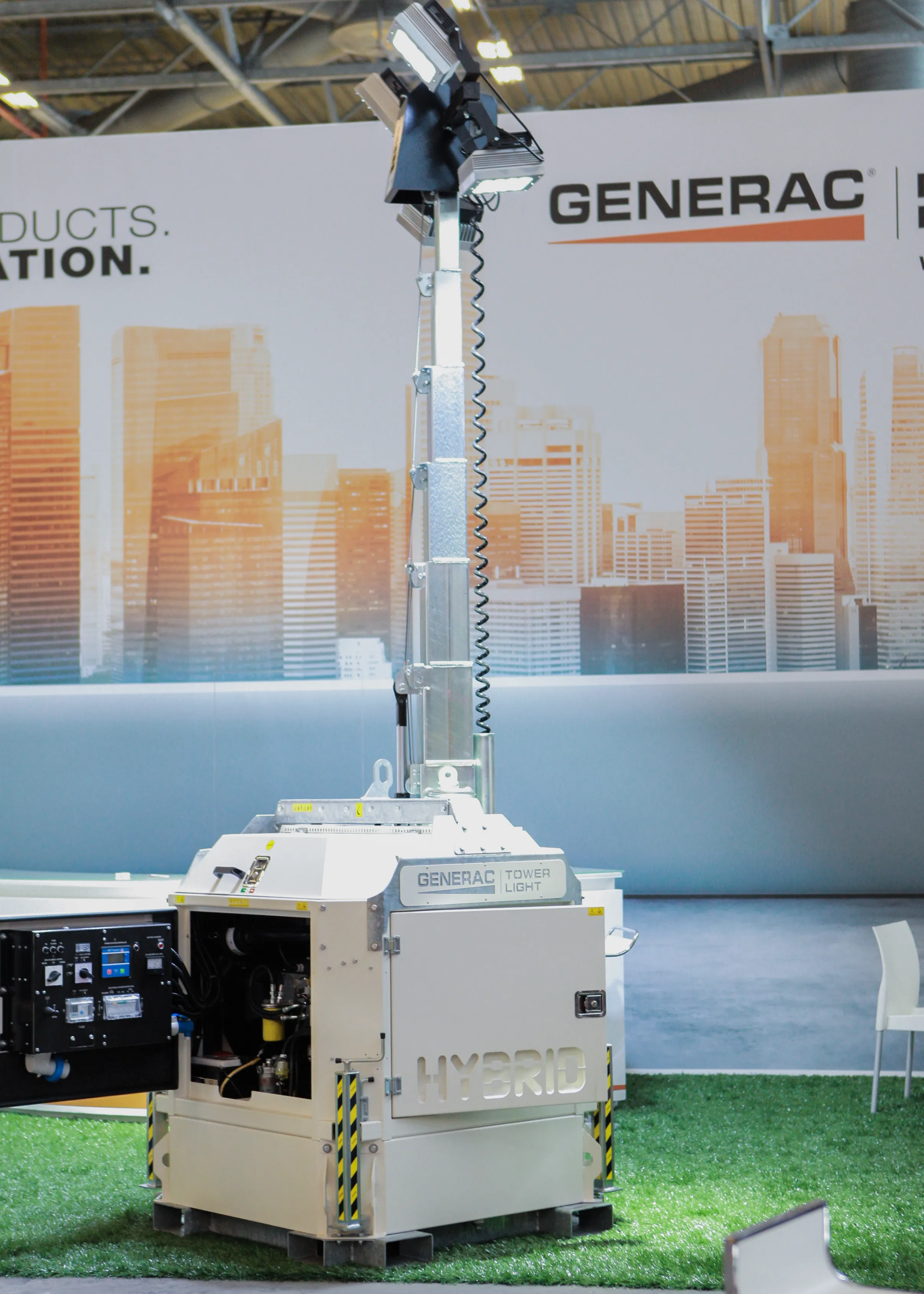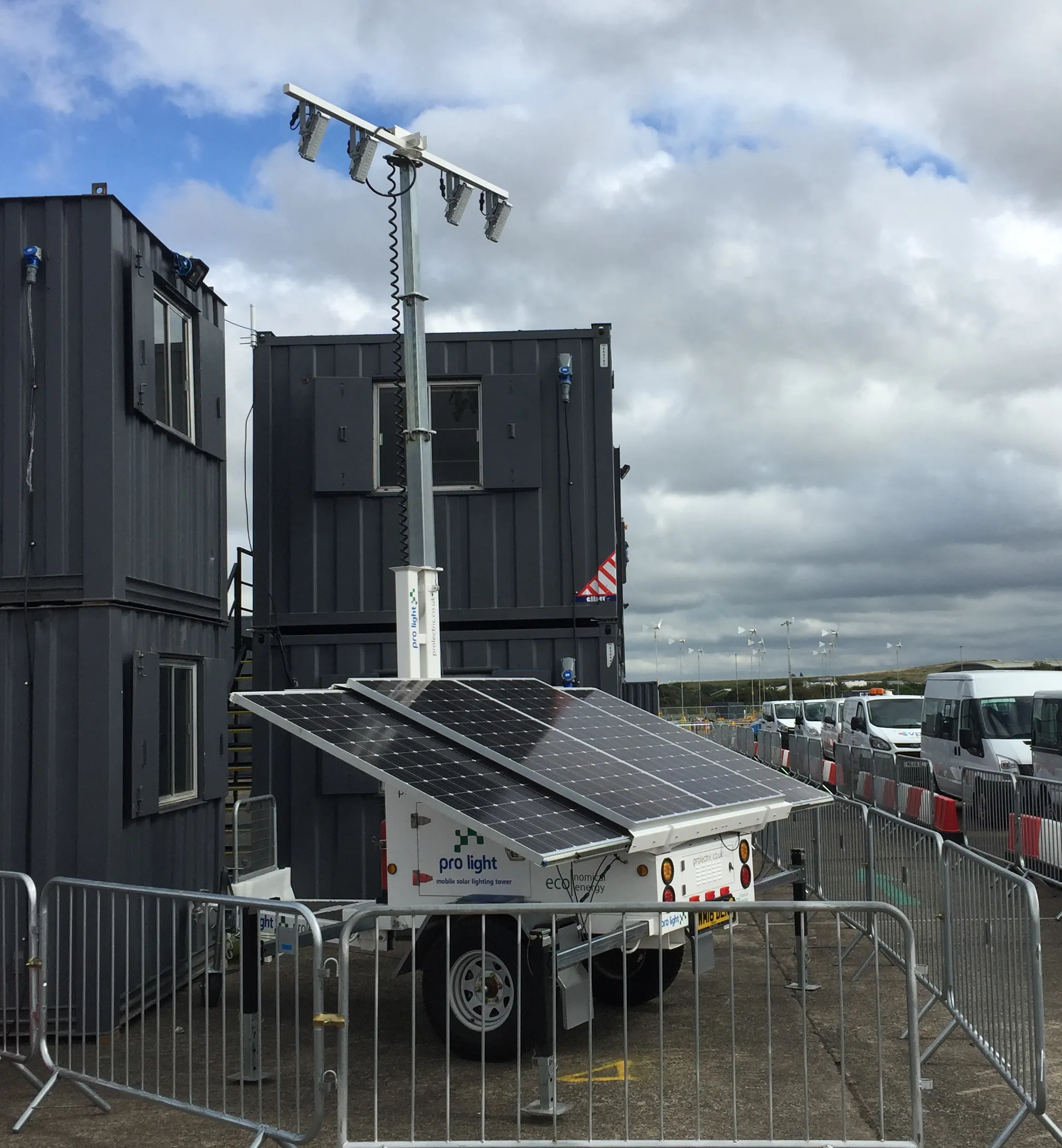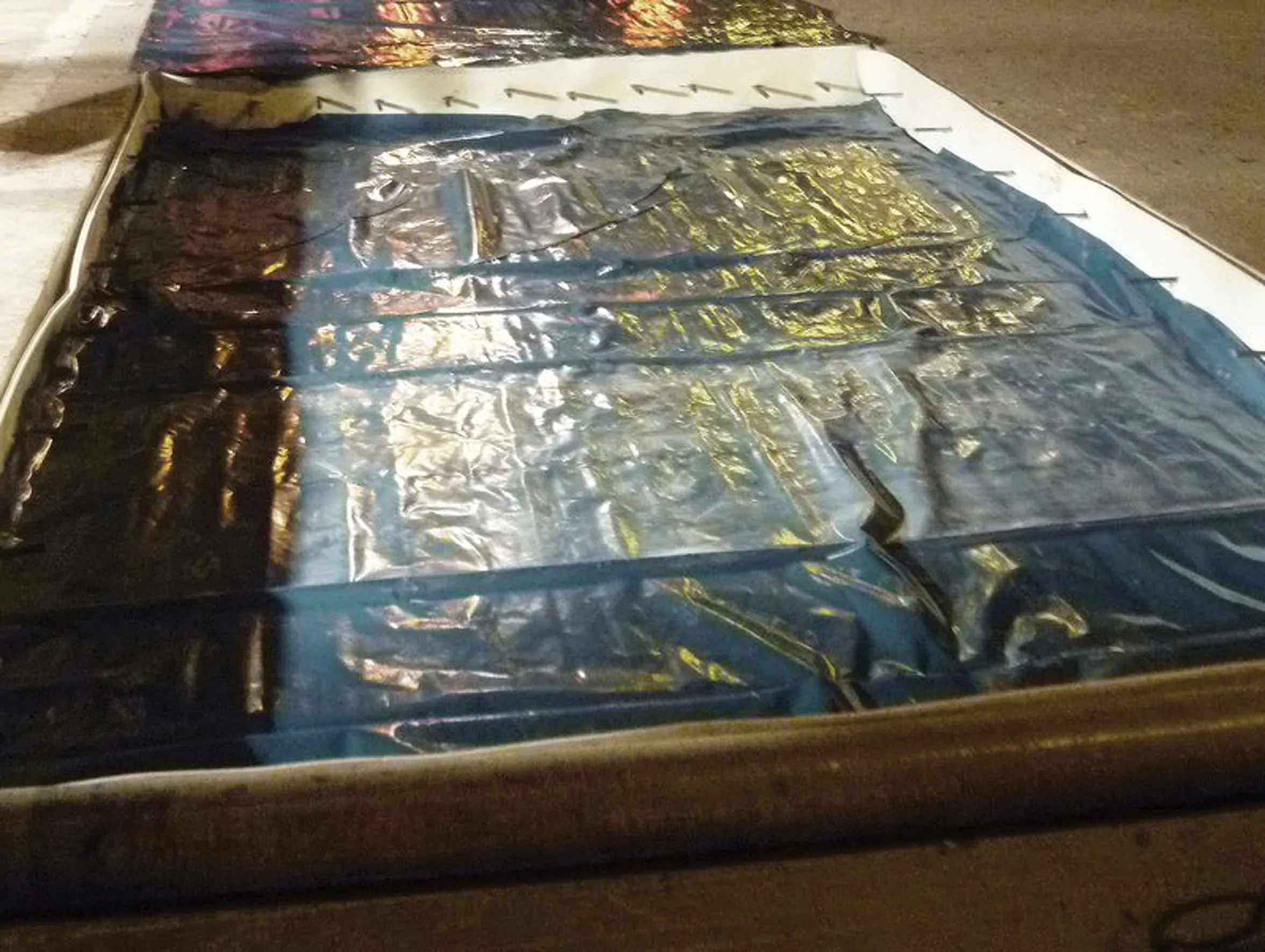
“We developed the hybrid in the UK with contractor Balfour Beatty,” said Generac’s UK MD Paul Hay. “Contractors are being asked not only for material and labour costs at tender but also being asked how they will reduce their carbon footprint.”
The LED lights are powered by a battery and the unit has an on-board charging generator so that in a 14-hour period, for instance, seven hours will be supplied by the battery. The hybrid versions come at a 30% premium in terms of capital cost, but can pay back in around two years said Hay.
The cubed hybrid lighting tower has the same specification as the wheeled version, with the advantage that where several are required, they can be more efficiently transported: 20 cube towers can fit in the same space as six or seven wheeled versions. “They are ideal for applications like motorway works where you are not moving the lights around regularly,” said Hay.
“The other big benefit is that they reduce safety risks because they have to be re-fuelled much less often. Refuelling is needed every 700 hours compared to traditional ones which run for 65 hours.”
To date the UK has been the main market for hybrid lights, accounting for 25% of all those sold there. The Netherlands is the next strongest market, followed by France, said Hays.









